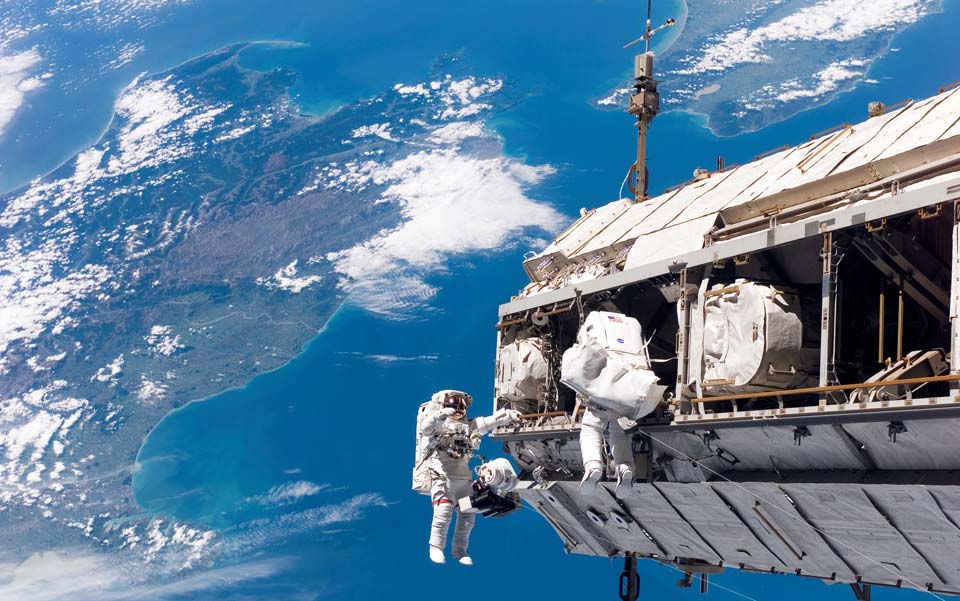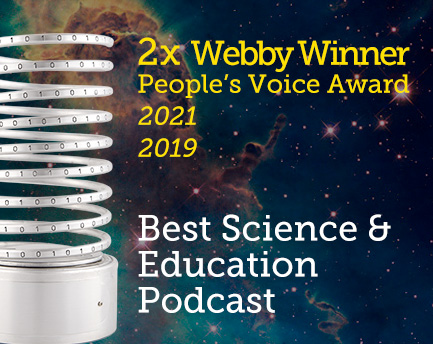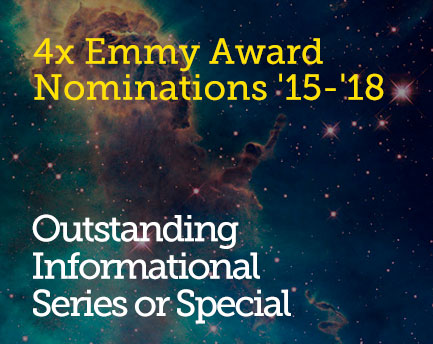May 18, 2013 12:32 pm
In This Sunday’s Podcast, The Space Program Grows Up
One of my earliest memories is sitting on my mother’s lap and watching the launch of the last Mercury flight, Gordon Cooper in Faith 7. I was so young that it’s just a sliver of a memory, but I think it was at that moment that I, like most boys of my generation, decided to become an astronaut.
Of course, like most boys of my generation, I never did.
But the space program remained a fixture in my life. I watched Gemini, I watched Apollo. I watched Skylab and Apollo-Soyuz and the Shuttles and the ISS. And I watched them through a childlike filter, not really thinking about the business of space exploration, budgets and politics and hidden agendas.
Like me, you may not think about the space program the same way after listening to Space Chronicles Parts 1 and 2.
In Part 2, which will be available this Sunday at 7 pm ET, astrophysicist Neil deGrasse Tyson and Professor John Logsdon talk a lot about the ISS and the post-cold war space program. And these are two guys who know what they’re talking about. Neil served on both President George W. Bush’s Commission on the Future of the United States Aerospace Industry in 2001 and the President’s Commission on Implementation of United States Space Exploration Policy (the “Moon, Mars, and Beyond” commission) in 2004. And John is a current member of the NASA Advisory Council, and was a member of the Columbia space shuttle Accident Investigation Board, as well as holding the first Chair in Space History at the National Air and Space Museum and founding the Space Policy Institute at George Washington University.
So when they talk about the real reason the Russians were invited to participate in the International Space Station, it’s not with the starry-eyed wonder of a kid who believes that it was just the first step towards a United Earth on the path to the eventual United Federation of Planets.
When Neil and John discuss the value of the experimentation on the ISS, it’s with this question in mind: if you offered the scientific community $3 billion for experiments, would they choose to spend it out in space, or here on Earth? ($3 billion is the annual cost of the ISS.)
And when Neil gets around to discussing President Obama’s 2011 State of the Union speech, AKA America’s “Sputnik Moment,” the little boy that remembered that flight wanted to curl up in a ball.
Listening to these two reminded me that it is sometimes nice not to be an insider, to not know how things really work. To be able to watch Chris Hadfield sing David Bowie and not think about the politics of the space program, or the money, just what it would be like to be an astronaut.
But of course, that is naïve. We are all StarTalk Radio fans because we want to know how things work. We want to know the science, not the superstition. We want to base our worldview on facts, not fiction.
Listen to Space Chronicles Part 2 tomorrow night at 7:00 pm ET and you’ll get plenty of facts and a healthy dose of reality.
But one suggestion: If you have a 3-year-old who wants to be an astronaut when he or she grows up, listen to this episode without them. Leave them their childhood for a little longer.
That’s it for now. Keep Looking Up.
–Jeffrey Simons
Get the most out of StarTalk!
Ad-Free Audio Downloads
Ad-Free Video Episodes
Stickers & Mugs
Live Streams with Neil
Priority Cosmic Queries
Early-Access Videos
Learn the Meaning of Life
...and much more


 Become a Patron
Become a Patron

